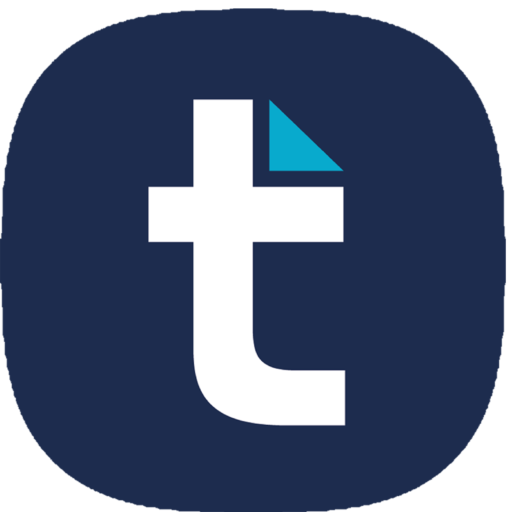Everything you need to know to register for vocational training programs in Germany 2024
vocational training programs in Germany
The vocational training program in Germany, also known as Ausbildung, represents an integrated approach to vocational education that combines theoretical study with practical application.
Vocational training in Germany generally begins twice a year (September 1 – April 1 of each year), but in particular companies set start dates for their own Ausbildung.

Vocational training in Germany is divided into two main parts:
The practical part, where students receive training on the job sites, reflects the practical dimension of the programme.
The theoretical part, which takes place in a specialized school, whether governmental or private.
The word Ausbildung translates to “vocational training” in the German context, and refers to a unified educational system that aims to prepare young men and women for their professional futures.
Depending on the chosen specialty, vocational training in Germany can last from two to three and a half years.
Many individuals choose to begin vocational training immediately after finishing high school, whether industrial, technical, or any other type of school that qualifies for a training contract in Germany.
Those interested in vocational training in Germany should familiarize themselves with two basic terms in the German language:
- Industrial apprenticeship (Ausbildungsberufe)
- Dual training (Ausbildung Dualen)
The theoretical aspect of vocational training programs in Germany
The theoretical part of vocational training programs is offered in several German vocational schools, which cooperate with a variety of companies. Students are required to complete this theoretical part in these schools, as the duration of theoretical study varies depending on the profession and educational system of each school.
The theoretical aspect usually makes up approximately 40-50% of the total vocational training in Germany. At the end of this educational section, an evaluation test is conducted to determine whether the student has successfully passed this stage.
It is important to know that some specializations in German vocational training require students to prove that they have obtained a high school diploma with high grades to enroll. Examples of these specializations include prosthodontics, media, and other specialized fields.
The practical side of vocational training
The practical part of vocational training usually takes place in institutions such as companies, centers, hospitals, and other places that provide an opportunity to apply the profession practically. Students are required to commit to full attendance during office hours, which usually last between 7 to 8 hours per day.
At the beginning of the practical section, students focus mainly on learning, observing and learning, without direct involvement in the work. As time passes and experience is gained, they are allowed to take on some responsibilities and practical tasks within the field in which they are training.
The practical section of the vocational training continues throughout the entire training period, and is alternated with the theoretical section to ensure an integrated and comprehensive educational experience.
Advantages of vocational training in Germany
- The possibility of combining study and earning money at the same time.
- The program includes practical and theoretical aspects, allowing trainees to gain adeeper understanding of their specialty and profession, and enhance their professional growth.
- Students are able to earn enough to cover their living and education expenses, reducing dependence on parents or any other financier.
- Trainees can find job opportunities after successfully completing vocational training, thanks to the practical experience they gained during the training period.
Ausbildung Dualen
In Germany, dual training is a unique system of vocational education, where trainees receive practical training in their responsible companies, in addition to learning the theoretical aspect at a vocational school or university. The vocational school system in this type of training is different from the traditional system discussed previously.
One of the characteristics of dual training is that it offers a lower salary compared to regular vocational training in some cases, in addition to being more demanding due to the pressure resulting from combining work and study hours.
Examples of dual vocational training programs include:
- Informatics
- the press
- media
- programming
- electronic Engineering
At the end of the dual training, the student receives a certificate considered equivalent to a university degree, which qualifies him to work in various parts of Germany.

Possibility of shortening the duration of vocational training in Germany
In Germany, there are several ways to reduce the total duration of vocational training. If you have an intermediate level of education, it is possible to shorten your training period by up to six months. If you have a general qualification for higher education or a technical college entrance qualification (such as a high school diploma), the training period can be shortened by up to twelve months.
To do this, you must submit a joint application with your training company to the responsible union, such as the Chamber of Industry and Commerce or the Chamber of Crafts, at an early stage. If you pass the intermediate exam with a high score, you can also apply for early admission to the final exam. In this case, you must obtain approval from your vocational school and training company.
In addition, if you have studied at university in a certain specialty and want to do a vocational training in Germany in the same field, you can submit a copy of your grades and the university subjects you studied to apply to shorten the duration of the vocational training by a maximum of 12 months out of the total number of years of training.
Requirements for registration in vocational training in Germany
- Obtaining a general school qualification or its equivalent.
- There is no set legal age limit for applying, but companies may set their own criteria, such as requiring applicants under the age of 30 or 25 as examples.
- It is not possible to apply for a language visa and a vocational training visa at the same time.
- Proof of language proficiency at B1 level or above before applying for vocational training.
- The vocational training contract must be adhered to until its end and it is not permitted to be terminated early.
- If the vocational training is unpaid, work is permitted with a salary not exceeding 450 euros.
- Obtaining a high school diploma, whether scientific, literary, vocational or industrial, and it must be recognized in Germany.
- If applying for a specific specialty, it requires a two-year academic degree or intermediate institute, or one year of experience in the desired specialty.
- The vocational qualification certificate includes a qualification diploma, industrial secondary school, technical or commercial secondary school, or any other qualification that includes a study period of no less than twelve years.
Steps to obtain a vocational training contract in Germany
To apply for a vocational training program (Ausbildung) in Germany, you must first determine whether the specialization is practical or theoretical. If theoretical, it is necessary to look for schools that provide this type of training. German websites can be used to search quickly and efficiently.
Content of the training contract:
- A written training contract must be concluded before training begins at the company.
- The contract includes the training objective and structure, including a precise training plan.
- It specifies the beginning and duration of training, training measures outside the training center, and the duration of daily working hours.
- The contract also includes probationary period, vacations, payments, and training allowance amount.
- It includes the terms of termination of the contract and a reference to the applicable collective agreements.
Who signs the contract?
You must sign the contract yourself along with a representative of the training company.
If you are under the age of eighteen, your legal guardian must also sign.
Duration of the trial period:
Apprenticeships begin with a probationary period lasting from a minimum of one month to a maximum of four months.
During this period, the contract can be terminated by both parties without giving reasons, and this must be done in writing.
Leave during training:
All trainees have the right to leave, and the Labor Law specifies the minimum number of leave days.
Leave provisions differ between minors and adult trainees.
The exact number of vacation days is specified in the training contract.
The best vocational training specializations in Germany
- Air traffic controller
- Management and business
- Bank functions
- Sales Officer
- physical
- Chemistry
- Engineering dedications
- Legal analyst/researcher
- Railway worker
- Specializing in information technology
- General maintenance work
- Construction worker
- Home builder
- Mechatronics specialty
Steps to obtain a vocational training visa in Germany
Make an appointment with the German Embassy: You must arrange an appointment in advance online at the Ausbildung Visa Section of the German Embassy in your country.
Paperwork:
- Ausbildung visa application form.
- A vocational training contract signed and stamped by the employer in Germany.
- A passport valid for more than nine months.
- Recent personal photos.
- German language certificate.
- Any relevant work certificates and experience.
- Educational certificates.
- Motivation message.
- the biography.
- Certificate of being convicted or unconvicted from your country.
- Individual registration certificate or birth certificate.
Financing terms:
In the case of an unpaid internship, a closed bank account of €7,900 must be opened in a German bank.
In the case of paid training, a salary statement must be obtained from the employer in Germany, clearly stating the amount, duration and benefits.
Do you want to study in Germany? Our team of experts provides you with the service of studying your academic file to help you choose the ideal university.
What you get:
- Study your academic profile: We analyze your certificates and grades to determine which German universities are right for you.
- Enhance your CV: We give you guidance to enhance your CV and make it stand out.
- Counseling video call: We provide you with valuable advice to help you prepare for admission.
- Personal guidance: We recommend three German universities that suit your academic and professional profile, with clarification of important dates and procedures.
Extras:
- Multilingual Support: Our service is available in several languages to assist international students.
- Flexible payment options: We offer multiple payment options to make the process easier for you.
The cost of studying the file: only $50!
Hurry to reserve your seat in the most important German universities.
Contact the #Admissions and Registration Department through the following number:
wa.me/905333805402
Read also:
- KING ABDULAZIZ UNIVERSITY SCHOLARSHIP 2023-24
- DSU INTERNATIONAL SCHOLARSHIP 2023-2024 IN ITALY
- AUSTRALIAN GOVERNMENT RTP SCHOLARSHIP FOR INTERNATIONAL STUDENTS
- Digital Marketing Strategies for E-Commerce in 2024
- MOST IMPORTANT ARTIFICIAL INTELLIGENCE COURSES
- Global Peace Summit Qatar 2024 (Fully Funded Conference)
- Chevening Scholarship 2023-2024
- MASTERS SCHOLARSHIPS IN CANADA
- Oxford University scholarship
- CANADIAN GOVERNMENT SCHOLARSHIP 2023-2024| VANIER CANADA SCHOLARSHIP
- STUDY IN SWITZERLAND FOR FREE THROUGH THE SWISS GOVERNMENT SCHOLARSHIP
- STUDY IN SWITZERLAND FOR FREE THROUGH THE SWISS GOVERNMENT SCHOLARSHIP
- Top 15 Europe Scholarships for International Students 2024
- University of Padova Scholarship in Italy 2023 | Fully funded
- Top 10 Scholarships in Canada for International Students 2024
- King Fahd University of Petroleum and Minerals Scholarship 2024
- FRANCE EXCELLENCE EIFFEL SCHOLARSHIP PROGRAM
- The 2024 AIML Residency Program Application is Now Open
- DAAD Helmut-Schmidt Masters Scholarships 2024-25 Great Chance
- DAAD Helmut-Schmidt Masters Scholarships 2024-25 Great Chance
- Leaders of Tomorrow Scholarship 2024: Full Funding for Arab Students in American Universities
-
A job opportunity is available in Turkey for all nationalities 2024
- Full funding to study artificial intelligence in Europe 2024
- DOHA INSTITUTE SCHOLARSHIP 202-24: YOUR GUIDE TO GRADUATE STUDIES IN QATAR



